Choose the Correct Seeds for You
Seeds are small mighty kernels that are super-nutritious. They are also known as a powerhouse of nutrients and daily consumption provides a myriad list of health benefits. They contain all the starting materials necessary to develop into complex plants. These contain an ample amount of fibre, healthy monounsaturated fats, polyunsaturated fats, vitamins, minerals, and antioxidants present in them. They are extremely versatile when incorporated into any recipe. When consumed as part of a healthy diet, seeds can help reduce blood sugar, cholesterol, and blood pressure. They can help you to lose weight while providing you with enough energy for the whole day.
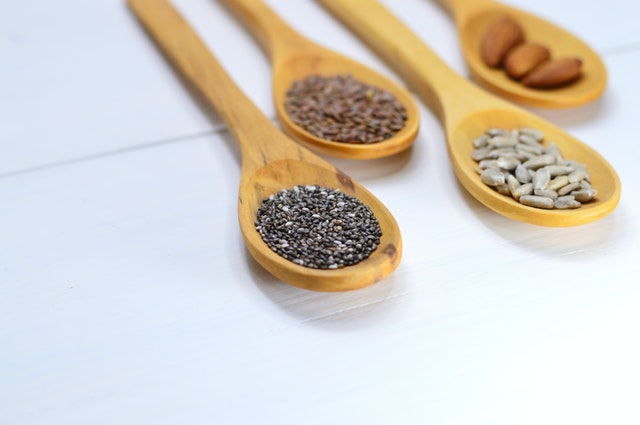
Do you need more Energy but want to lose weight? Do you want to Stay Healthy? Follow this Article for that!
This article will describe the nutritional content and health benefits of the healthiest seeds you can eat.
Let’s have a look at some of the available Seeds which provide potential health benefits.
Note – These Seeds need to be incorporated into a well-balanced healthy diet in combination with lifestyle changes for them to work optimally.
Chia seeds
The chia seed has stolen the limelight lately on the supermarket red carpet, showing up in everything from energy bars to cereals to beverages. Chia comes from a desert plant in Mexico called Salvia hispanica. Rich sources of omega-3 fatty acids, carbohydrates, protein, dietary fiber, antioxidants, and calcium. These tiny black and white seeds were used long ago by Mayan and Aztec cultures to boost energy. Chia seeds contain five times more calcium than milk, seven times more Vitamin C than oranges, three times more iron than spinach, twice the potassium content in Banana, and eight times more Omega 3 than Salmon.
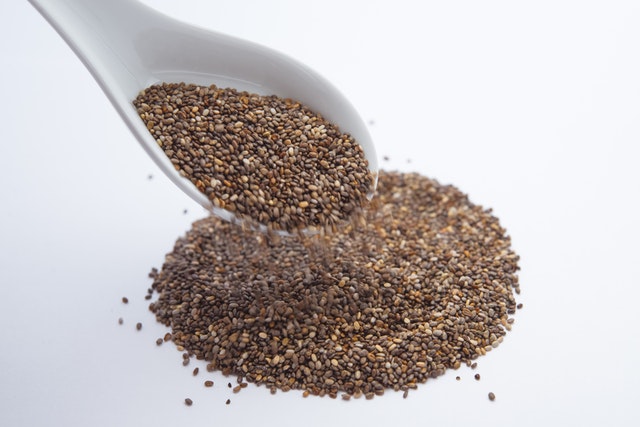
Health Benefits
High-quality protein, Boost Energy and Stamina, Controls hunger, Fights cervical and breast cancer, Good for heart health, Helps to treat Diabetes, Cleanses Colon, High in antioxidant, Helps to digest, Controls Hypertension, Builds muscle, and aids weight loss, Arthritis, Gets rid of Toxins, Reduce Inflammation, Promotes sound sleep, Hyperactivity disorder, Healthy skin, hair, nails.
Fenugreek Seeds
Trigonella foenum-graecum (L), or fenugreek is an annual herb belonging to the family Papilionaceae and is cultivated throughout the country. Fenugreek is native to Eastern Europe and parts of Asia but now widely cultivated almost all over the world for its leaves and seeds. They are commonly used as leafy vegetables and condiments, respectively. The leaves and seeds of the plant are widely used as a spice in food preparations and as ingredients in traditional medicine. Fenugreek contains a specialized type of soluble fiber “Galactomannan” that slows the absorption of glucose in the intestine.
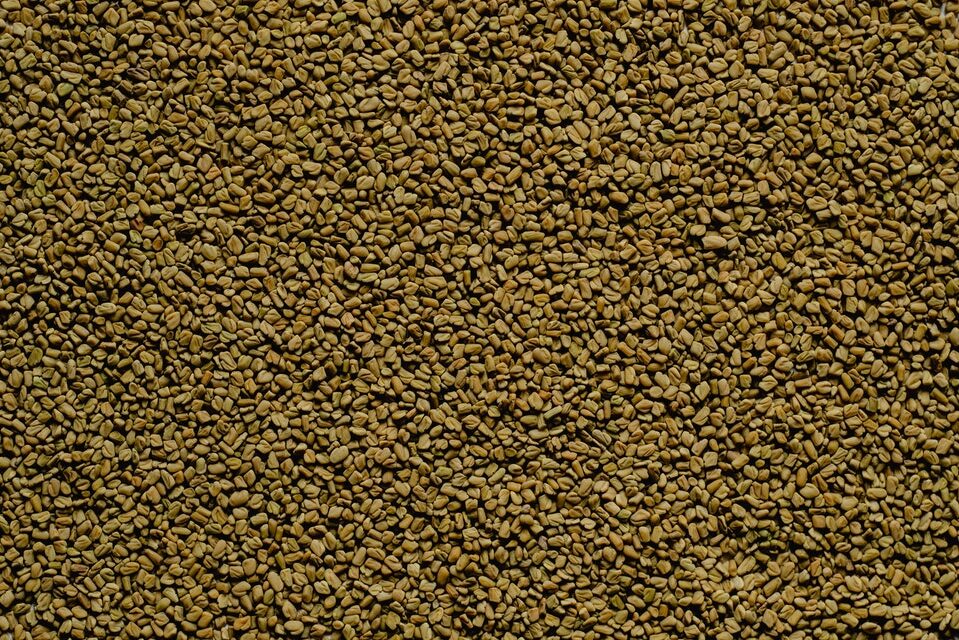
Health Benefits
It has various potential pharmacological effects in modern medicine such as Antidiabetic, Antilipidemic, Antioxidant, Hypocholesterolemic, Hepatoprotective, anti-fungal, Anti-Inflammatory, Antibacterial, Anticarcinogenic, Antiulcer, Antilithigenic, Neuroprotective Effects, Cures Skin Inflammation and Scars, Lose weight by suppressing appetite, Remedy for fever and Aids Digestion.
Fennel Seeds
Fennel is traditionally used for medicinal and culinary purposes. The entire plant is valuable in the medicinal industry and its enlarged base is used as a vegetable. Its leaves are used for culinary purposes and its seeds as a spice and essential oil extraction. Fennel is a versatile ingredient in cooking because it can be used as an herb, spice, or vegetable. The aromatic and flavorful herb comes with a rich array of nutrients including Vitamin A, B6, C, and minerals like calcium, iron, zinc, manganese. Fennel is super high in dietary fiber, covering more than 25 percent of your daily value. Potassium, which is crucial in maintaining low blood pressure. Fennel seeds are a storehouse of antioxidants and volatile oils.
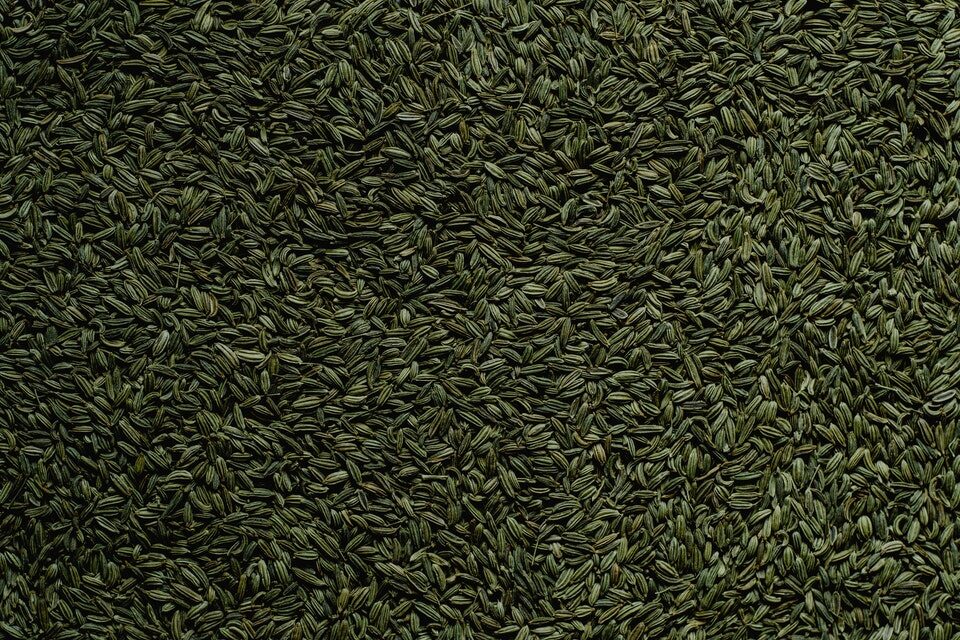
Health Benefits
Acts as Diuretics and detoxifies the blood, relieves hemorrhoids, Aromatic quality relaxes blood vessels. Helps to get rid of intestinal worms, acts as a mouth freshener, anti-aging, prevents hair fall, antiseptic, anti-oxidant rich. Prevents eye disorders, reduces weight, relief from common cold and cough, promotes proper bowel movement, improves bone strength and development, relieves the menstrual problem.
Flax Seeds
Flaxseeds provides medicinal benefits. Rich in omega-3 fatty acids, dietary fiber, and lignans (beneficial plant compounds). Recent studies show flaxseeds may help reduce belly fat and lower your risk of heart disease, cancer, stroke, and diabetes. Flaxseeds are widely available in products such as frozen waffles, cereals, and meatless meal products. Rich in antioxidants, Vitamins B, Magnesium, potassium, manganese, phosphorous, iron, copper, high in dietary fibre.
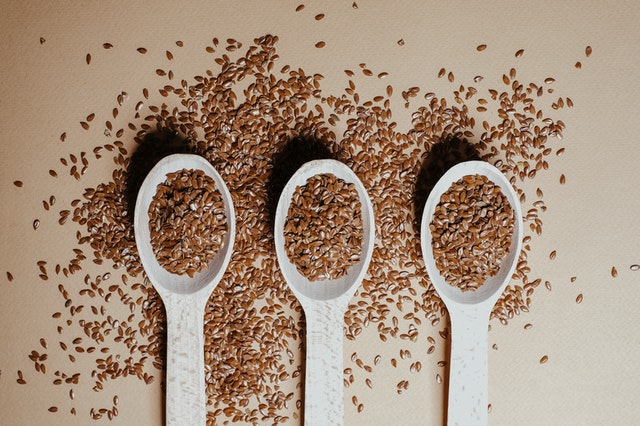
Health Benefits
Flax seeds are beneficial who have problems with gas, it helps with eliminating gas. High in omega- 3, Potent anti-inflammatory, Fires up metabolism, Burns fat, aids in constipation, pulls debris out of the bowels, lowers cholesterol, lowers blood pressure, controls blood sugar, help to keep hunger at bay, which may aid weight control, rich in lignans which may reduce cancer, phytoestrogens that protect against cancer, anti-viral, anti-bacterial. Flaxseed have potential health benefits. such as in reduction of cardiovascular disease, atherosclerosis, diabetes, cancer, arthritis, and osteoporosis, autoimmune and neurological disorders. Flax protein helps in the prevention and treatment of heart disease and in supporting the immune system.
Pumpkin Seeds
The pumpkin plant, along with its seeds use in the traditional medicine of many countries, including India, Mexico, Canada, the United States, China, and Europe. Subtly sweet and nutty with a somewhat chewy texture, pumpkin seeds are lower in fat than other seeds and offer essential minerals like iron, zinc, magnesium, and potassium. Great source of Vitamin B, E, and K. Pumpkin seeds also contain protective compounds called phytosterols, which likely contribute to their known prostate and heart health benefits. Pumpkin seeds contain with L- tryptophan, the relaxing amino acids. The only seeds that are alkaline-forming. 100 g seeds provide 30 g of protein. Raw pumpkin seeds are essential. They are rich in antioxidants, anti-inflammatory properties, and Omega 3 fatty acids.
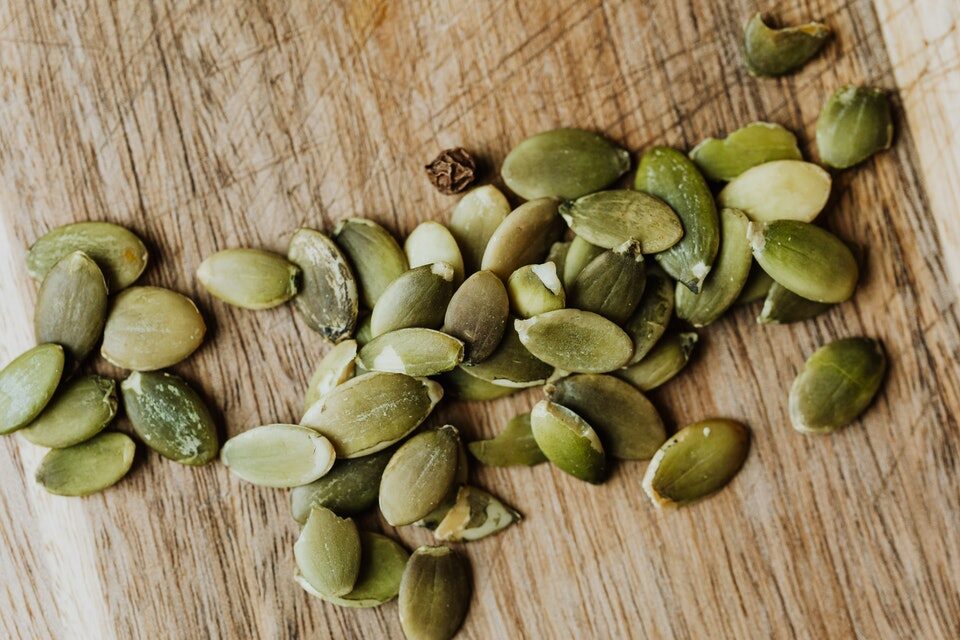
Health Benefits
Raw pumpkin seeds are essential for skin health and wound healing and promote good prostate health and offer anti-inflammatory and cholesterol-lowering benefits. Helps in reducing the levels of LDL cholesterol, inflammation for arthritis, blood pressure, boosting immunity, maintain sugar level, prevent kidney stone formation. Good for prostate health, liver functioning, gallbladder, disabilities of learning, inflammation, cancer management and Promote good sleep, lowers depression, preventing kidney stone formation, natural protector against osteoporosis, and inhibition of parasites.
Sunflower Seeds
Small but mighty, sunflower seeds are an excellent source of protein, iron, folate, zinc, dietary fiber, and vitamin E. In fact, sunflower seeds are the best whole-food source of vitamin E, a nutrient that may slow the effects of aging boosts the immune system, and an excellent source of Selenium, Magnesium, and Zinc. Sunflower is good for its oil and protein content. Proteins present in sunflower seeds have favorable amino acid distribution and, in addition, tocopherols, minerals, and vitamins are provided in substantial amounts.
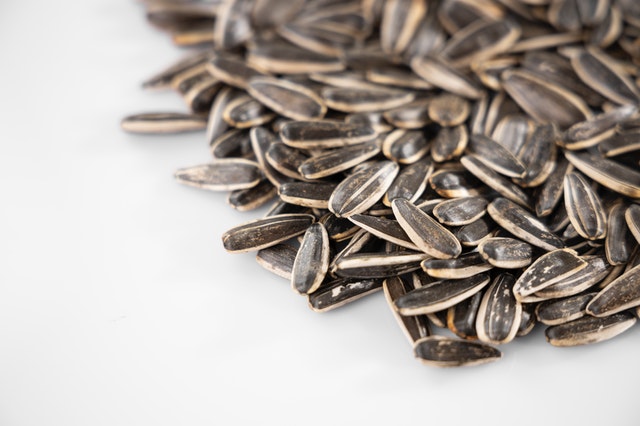
Health Benefits
Gives relief from muscle cramp, reducing blood pressure and treating migraine, treating thyroid health, phytosterol which helps in lowering blood cholesterol level, treating inflammatory conditions like Arthritis, improves bones, improves skin, Antioxidants, Assist nerves, Prevents anemia, assist heart health, eases arthritic pain, control cell damage, assist cancer prevention.
Sesame seeds
Sesame (Sesamum indicum L.) seeds grow in tropical regions throughout the world since prehistoric times. Sesamol and sesaminol are phenolic anti-oxidants. Together, these compounds help stave off harmful free radicals from the body. Sesame seeds are a very good source of dietary proteins with fine-quality amino acids that are essential for growth, especially in children. Just 100 g of seeds provide about 18 g of protein (32% of daily-recommended values). Sesame is amongst the seeds rich in quality vitamins and minerals. They are very good sources of B-complex vitamins such as niacin, folic acid, thiamin (vitamin B1), pyridoxine (vitamin B6), and riboflavin. These provide calcium, iron, magnesium, phosphorus, zinc, B vitamins, and dietary fiber.
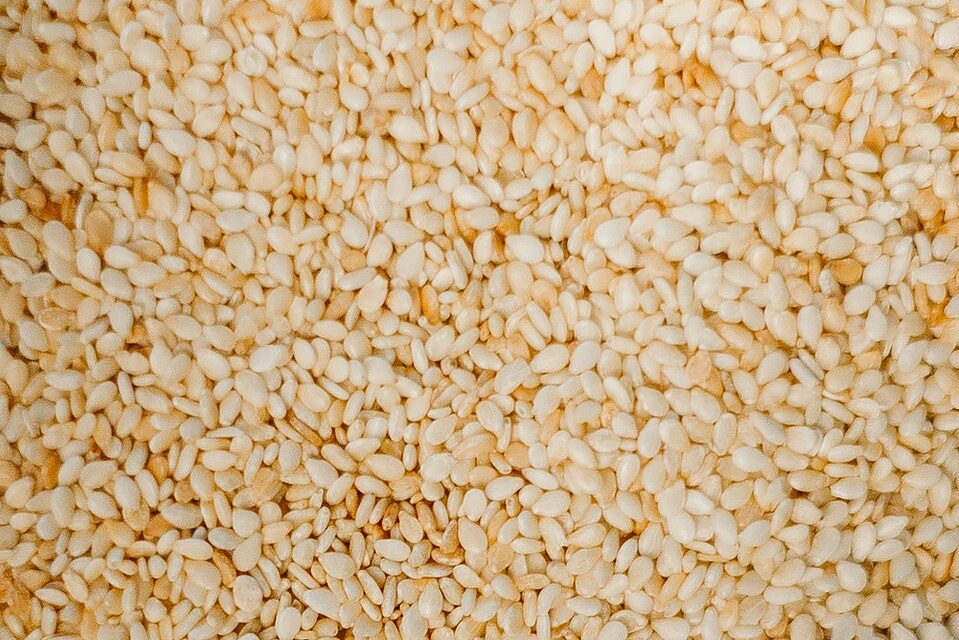
Health Benefits
Promotes bone health and prevents Osteoporosis, and also helps to prevents tooth decay, halitosis, bleeding gums, dry throat, fight free radicals, prevent hangover, anticancer, anti-depressant, anti-inflammatory, lowers blood pressure, and also reduces the risk of cardiovascular diseases and hypertension, reduces signs of premature aging and strength muscle, tissue and hair, Beneficial in protecting DNA from harmful effects of radiation caused by chemotherapy and radiopathy, facilitates digestion and prevents constipation, solution for anemia, good for oral health, lowers cholesterol, prevents wrinkles, good for eye health, improves respiratory health.
Frequently Asked Questions
How to use seeds?
- Eaten Sunflower seeds or pumpkin kernels as a snack by themselves, either raw or dry-fried.
- Dry-fry seeds in a pan to bring out their flavor. Take them off the heat once they start to color as they will continue cooking for a little while. When you dry-fry seeds, the heat will affect the oils, so it is advisable to heat only the amount you are going to use straight away. If kept, dry-fried seeds will quickly go rancid.
- Use as a garnish or mixed through salads to add texture and flavor,
- Add them to muesli or other cereals.
- Use in bread and baking, either whole or ground.
- Add ground flaxseeds (also called linseeds) or chia seeds to smoothies to add fibre, texture, and flavor.
How to eat? How it will be more effective?
Seeds represent life and many seeds are edible and eat raw when exposed to heat. They often produce toxic substances, and vitamins, minerals, and essential oils. By roasting the seed, its classification ranges from live food to dead food. There is no seed on the ground that can withstand roasting or heat treatment without destroying its nutritional components. Always remember – we should eat the seeds in their natural form, ie raw. Add them to other foods, but we should avoid those roasted or dipped in chocolate and the like.
How Food&wellness will help you?
For proper guidance and result, you should join the program of Food & Wellness. This program gives you a personalized diet plan that includes the kinds and amounts of seeds that you need to eat to have a healthy lifestyle. Food & Wellness will always guide you regarding every issue you face and it will be taken care of by our Dietitians.

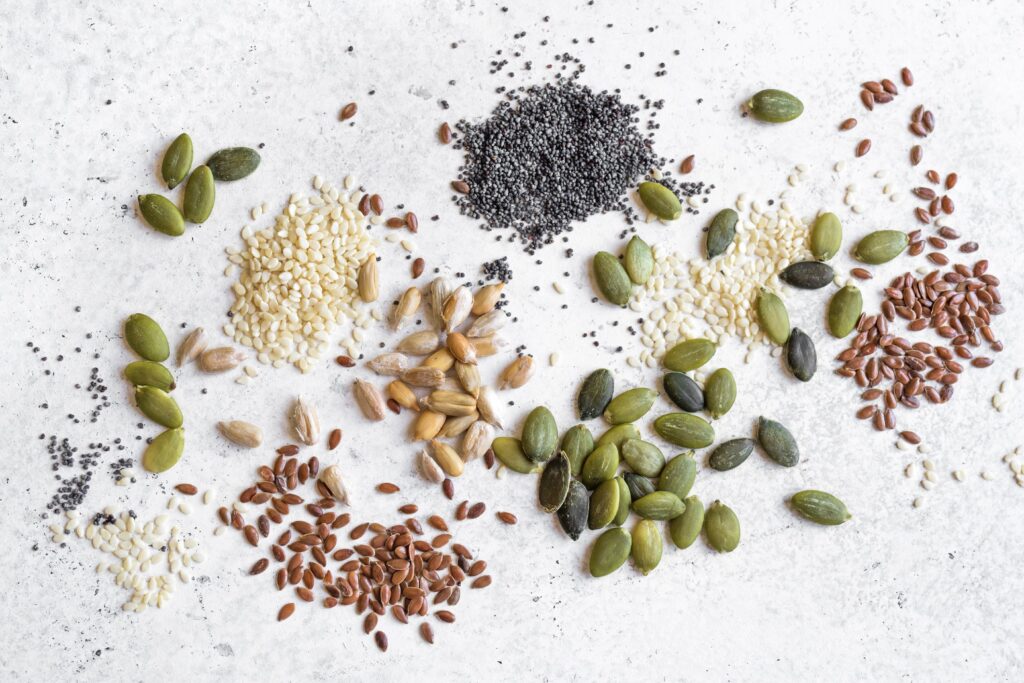



4 Comments
very informative article
Thank you😊
Great article! Enjoyed reading it!
Thank you for your Appreciation. I will try to get more content.